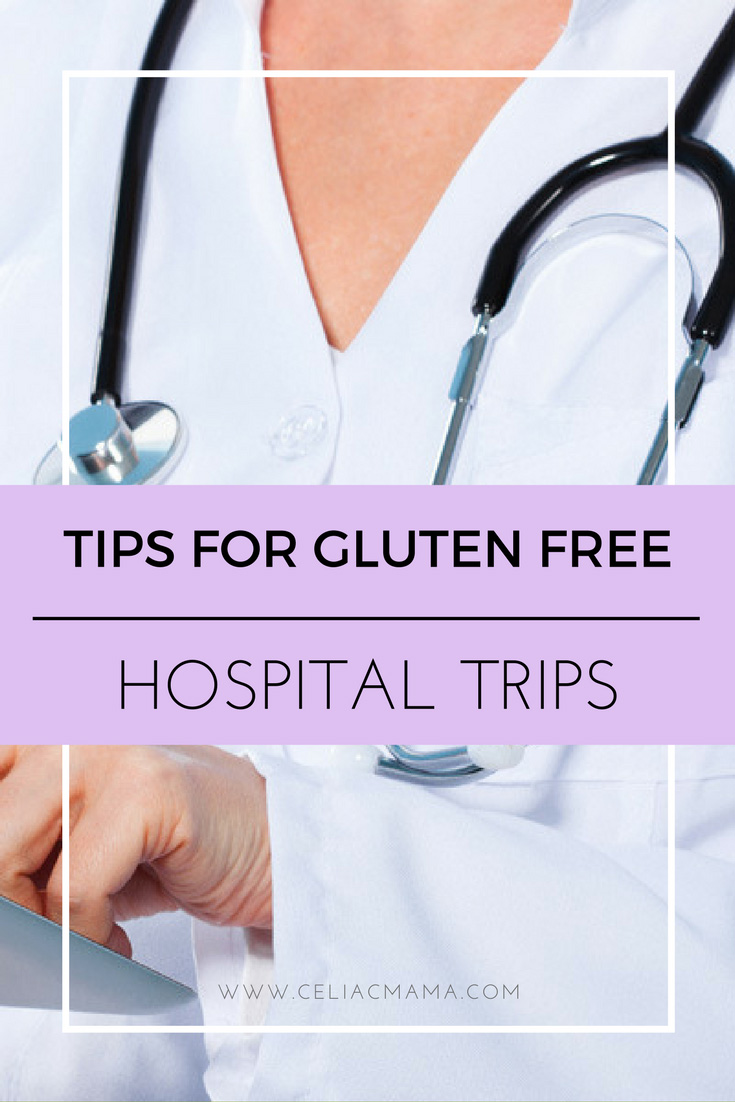Last week we had our first trip to the ER post celiac disease diagnosis. My daughter had croup – a respiratory virus that had been going around school and she was experiencing respiratory distress so we brought her to the ER. She received some medicine and is totally fine now, but I learned some valuable lessons through the experience that I want to share with you.

- Don’t assume the medical staff know what celiac disease is just because you’re at a medical facility. During the intake process, I mentioned that she has celiac disease to the nurses and was presented with head nods, so I assumed that they knew what it was. I later discovered they did not. When you check in, I recommend explaining what it is. If you feel uncomfortable because you’re talking to a highly educated professional, then lead with “I know you know this, but it will make me feel better to explain it…”
- Advocate, advocate, advocate. This builds upon number one and not assuming that the medical team is well educated about celiac disease. If a new staff person comes in to your room, don’t assume that they have been updated on dietary or medication restrictions. Start over and fill them in. When they discuss treatment options, make sure you ask if the medications are gluten free. If they are not sure, have them look them up and come back. I always look them up on www.glutenfreedrugs.com but it’s good to double check that information with the doctors.
- Bring gluten free snacks. As I was walking out the door with my daughter, I looked back and saw a bag of gluten free pretzels and I grabbed it. It was the middle of the night and I figured that it was silly to bring them, but did anyway. I was so glad that I did when the doctor told me that my daughter needed to eat something with the medicine. Knowing she had celiac disease, they still offered her food that wasn’t gluten free. After I repeated my question about whether it was gluten free or not three times, they looked surprised and said they had no idea. Luckily, I had the pretzels with me so she ate those. I recommend bringing snacks because you may be waiting a while and get hungry, or they could be needed to take medications as was the case with us. If you’ll be staying in the hospital longer than a few hours, talk to the dietary manager to see if they can accommodate the dietary restrictions and if the foods are prepared in a manner to reduce cross contamination. If you’re not satisfied with their answer, then have a family member or friend bring in meals. The last thing you want is to deal with a gluten reaction on top of whatever other health situation brought you to the hospital.
While they took good care of my daughter, I am still feeling frustrated by the lack of education about celiac disease to medical professionals. This is a highly regarded hospital with an excellent children’s program. We as parents of children with celiac disease, as well as celiacs, have to keep our guard up so much of the time – going out to eat, birthday parties, play dates, at school, traveling – and I had falsely assumed that we didn’t have to do so in hospitals. I know that there are several nonprofits working diligently to increase celiac disease awareness and that it will get better, but in the meantime I hope that the three tips above help you.







Leave a Reply
You must be logged in to post a comment.